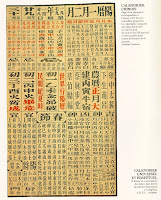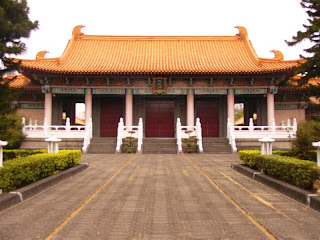1. The religions
There are many types of religious beliefs in Taiwan. There are thirteen registered religions in Taiwan that practiced by the residents of Taiwan. These encompass Buddhism, Taoism, Catholicism, Protestantism, Hsuan-yuan Chiao, Islam, Li-ism, Tenrikyo, Baha’I, Tienti Teachings, Tien Te Chiao, I-Kuan Tao and Mahikarikyo.
 |
| The religious calendar |
However, the three main religious traditions are Buddhism, Taoism and Catholicism. Most of the religions have priests that check the religious calendar and carry out the respective prescribed rituals. The Buddhism, Taoism and Confucianism are known as “three teachings” or sanjiao. Every religion has their history and their own temples.
 |
| The Buddhist temple |
Buddhism is the most generally practiced religion of Taiwan. It is originated from India and brought in to Taiwan in the late of 16th Century. Taoism is born several decades before Confucius which recognized by Lao-tzu (Laozi). The central idea of the religion is the fulfillment of divinity. His words passed down to us in the Dao De Jing and his philosophy is known as Dao. Catholicism introduced to Taiwan during the Spanish Settlement. A Catholic priest began this mission to introduce the Catholic assurance to people. Taiwanese believe in the Buddhist heaven and hell. They believe that a good life will be reward in heaven after died and bad life will in hell.
 | |
| Buddha |
 |
| Catholic |
 |
| Taoism |
2. The Foods
The food cultures in Taiwan are very strong as they have many different ethics in Taiwan with their own culture. Due to the wide varieties of food cultures in Taiwan, it emphasizes the country’s identity and increased the local awareness.
Taiwan xiao-chi in Chinese (“small eat”), which are the most popular foods (snack) that can be found in any night market in Taiwan. Some of the examples of the xiao-chi in Taiwan are o-a-tsian (oyster omelet), gong-yuan (meatball), and o-a-mi-suann (slender noodles with oyster).
Different ethics have its regional cuisine. The Taiwanese style of cuisine is best famous for its ti pang (stewed pig trotter) and san bei ji (three-cup chicken). For Hakka, the most famous cuisine will be the niang doufu (stuffed bean curd) and tieban doufu (teppanyaki bean curd).
 |
| Sun cakes |
Some of the well-known pastries in Taiwan are taiyang bing (sun cakes), fengli-su (pineapple tarts), guancaiban (coffin burger) and Fuzhou hujiao bing (Fuzhou pepper bread).
3. The people
The majority of the people in Taiwan are from the mainland of Fujian and Guangdong in China. Most of the people in Taiwan have their traditional values depends on Confucianism. This is the recognized by a scholar and philosopher who called Kong Fu Zi. His words passed down to us in the Dao De Jing which teaches the younger generation to be filial, loyal, sincerity and well-behaved. This is the system that stress the responsibility of people towards five relationships which are the ruler and subject, the husband and wife, the parents and children, the brothers and sister, and lastly the friend and friend.
Due to the globalization, these values are being threatened. However, some of these traditional values are well protected and preserved by the indigenous people in Taiwan. For instance, the well-behaved towards elderly and ancestor worship.
Before this, the women in Taiwan do not have the chance to study or work in higher position. However, the Taiwanese are now more open-minded so the women in Taiwan can enjoy freedom whereby they can now have higher education and higher position in their work.















